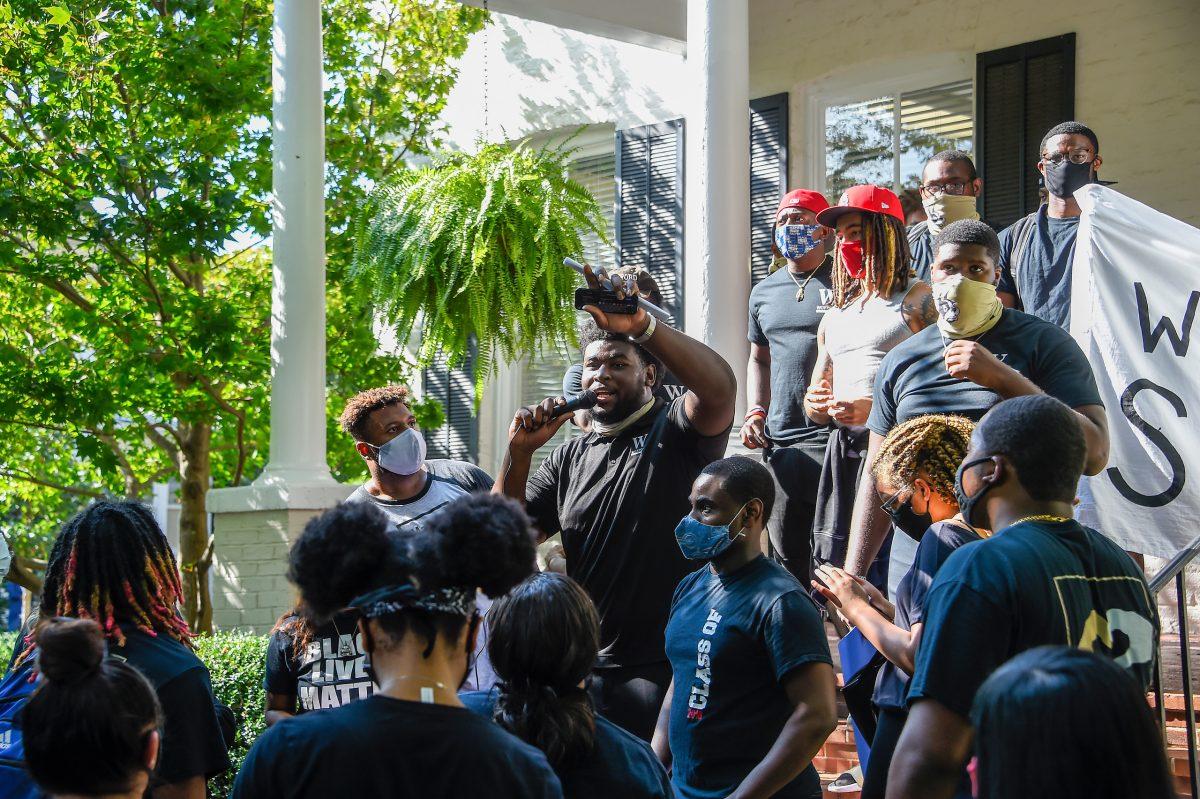Unpacking the complexity of an emotional and highly charged issue
I want to preface this response by saying I am a white male, and a student at Wofford College. I feel this identification is necessary because of how crucial one’s perspective and context is in matters of racial justice.
When I happened upon the above article a couple weeks ago, I immediately found points and sentiments within it that could be damaging to the hard work students have accomplished this year in racial equity. I felt that it was imperative to respond openly to the article as I felt contextual parts of the issue were missing.
Firstly, we must understand that there is a time and place for civil discussion, and that means there is a time and place where that is not appropriate. We have arrived at that time. If we weren’t there already, we arrived there when George Floyd was suffocated to death by a Minneapolis police officer, or when Breonna Taylor was gunned down in her own apartment.
If you are a white individual, or especially a white male, you may not understand why we must end the pretense of civil discourse. To reach that point, you must practice empathy, which allows us to not only imagine what it’s like to be someone else, but to actually feel some of the same things they are feeling.
This can occur at a protest for something you believe in but don’t quite relate to –you may have feelings of anger and determination wash over you simply by being around those who feel it so strongly. Without empathy, you cannot imagine how dehumanizing it is to sleep in a building named after a man who, a couple centuries ago, would have owned people like you as though you were property.
If you cannot practice this skill, there is no need to feel attacked – instead, you can simply respect the fact that if marginalized people are angry, they have a right to be exactly as angry as they are.
The article points to the fact that administrative figures and board members of our school claimed “no proof” of systemic racism on the campus. This is problematic because it is also missing the full perspective —the administrators and board members, all with a major stake in the college, cannot possibly give a complete assessment of racism at Wofford, and as college students, journalists and critical thinkers, we can do better.
For one thing, the negative experience of a single student of color should be sufficient to raise an investigation, let alone the majority of students of color at Wofford. In light of the summer atrocities, it would simply be disrespectful to question the legitimacy of the feelings and experiences students are coming forward with. No, they are not being “excessive” or blowing this issue out of proportion.
It is also unclear (within the article) if any of the board members or any of those consulted for opinions in the article are even qualified to speak on the matter. They either are not of a minority or can’t speak for current students, as is the case with Mr. Jones, consulted in the article. Ultimately, the students should have the final word on whether or not they are being treated unjustly.
There seems to be some fear expressed in the article about anti-racism programming and “cancel culture” at Wofford. These are complex issues that I am not fully qualified to speak on, but I will do my best.
First of all, I totally get being afraid of “cancel culture.” The internet community has too much undue judicial power over the lives of individuals.
However we must also understand that us white people have been made to feel as though we are living the dystopian nightmare of George Orwell’s 1984. And while I too am concerned by some of the recent “cancellations” more broadly, we are here to speak about Wofford, where that worry is simply unfounded.
Instead, it has been my experience that Wofford students in general are afraid to speak up, even to answer a harmless math question on the board. That’s just a Wofford thing.
Every perspective, when presented respectfully, should be responded to respectfully, and I have yet to meet a professor who hasn’t made it their mission to allow diverse perspectives in their class, provided all those putting them forward are willing to be receptive and to learn. We do not cancel people here, we educate them.
And finally, let’s investigate the “systemic” aspect here, which seems to be the primary source of the article’s concern. Here’s a half-truth for you: “All white people are racist.”
This claim, responded to in the article, is, to be fair, a little outrageous at first glance. But as college students, it is our job to dig deeper with sentiments like these and avoid doing battle with oversimplified, surface-level buzz-phrases.
A more complete statement might go something like this: Since American society was initiated by and is still mostly controlled by white people, other white people, simply by participating in society, are automatically susceptible to unconscious assumptions, biases, and tendencies against minorities that must be actively recognized and challenged. The Cambridge Dictionary entry for “systemic racism” reads similarly: “policies and practices that exist throughout a whole society or organization, and that result in…unfair or harmful treatment of others based on race.”
If our society truly were without systemic racism, we would have united in condemning the summer atrocities
It’s not wrong to highlight a certain viewpoint the way this article does, but I argue that one must take in as many perspectives as possible to show the complexity of the issue, especially one so sensitive and charged for so many. As college students representing such a high-achieving school, we must hold ourselves to that higher standard – because at Wofford, it’s not just your world.
Written by Alex Rizzo-Banks
























